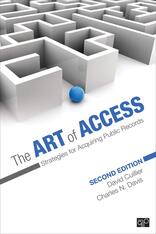|
I've spent the last two years working on and off on a new 9-part true-crime podcast, Ransom, which just launched today. You can listen to episode 1 above.
I'm really proud of the work I've done on it, and it's definitely the podcast I've sunk the most time into of any I've worked on. It was a blessing to get editorial support and to have the luxury of time to go through multiple rounds of revisions (some past projects of mine could've really used one more draft). In fact, Ransom, the only serialized true crime show I've worked on that was basically all in the can at the time of launch. That being said, the slower process has also taught me a couple lessons that I hope to take to the next project I work on.
0 Comments
Recently, KSL paid for me to attend the 2022 Investigative Reporters and Editors conference in Denver. IRE has a lot of workshops on data journalism, beat-specific seminars, and career advice, but I chose mainly to primarily attend lectures on finding government records through FOIA and its state law equivalents. Working in true crime podcasts, public police records and court documents are crucial to researching a story, and archival audio can really bring a story to life, but I really think these tips and tricks are useful to anyone doing investigative journalism. Does it exist in open records? Some states or agencies, automatically collect certain records and publish them online. For example, here are the open records from Utah's department of public safety. Do you know what you're looking for and who has it? If so, make a public records request. It can be helpful to look up the particular public records act for the place you’re requesting from and try to find a template specific to their statutes:
Think like a document: what might a record look like, and what agencies might also be interested in this information. Contact all agencies you think might have the info: You never know which agency might have the info and which one might be more responsive to public record requests. For example, with records from a criminal case that went to trial the DA's office, the county clerk, or the police agencies may all have somewhat overlapping sets of documentation. When in doubt make public records requests from all agencies. But also try to cultivate sources. Talk to PIOs or insiders at those agencies, and see if they have more info about what documents are out there. And what specifically to request. There are records of what the government keeps / releases to journalists:
Information from federal courts is sort-of stored online, through the outdated and overly expensive PACER system. PACER stands for the Public Access to Court Electronic Records. You need to make a login and hook up a credit card, and although you get a certain amount of free requests per month, after that point you get charged 10 cents/page. And you get charged before you even get to see the records.
 For additional info, at the conference, experts recommended David Cuillier and Charles Davis's The Art of Access, Strategies for Acquiring Public Records. I'm currently reading the book myself! |
AuthorBen Kuebrich is a senior producer at KSL Podcasts. ArchivesCategories |


 RSS Feed
RSS Feed